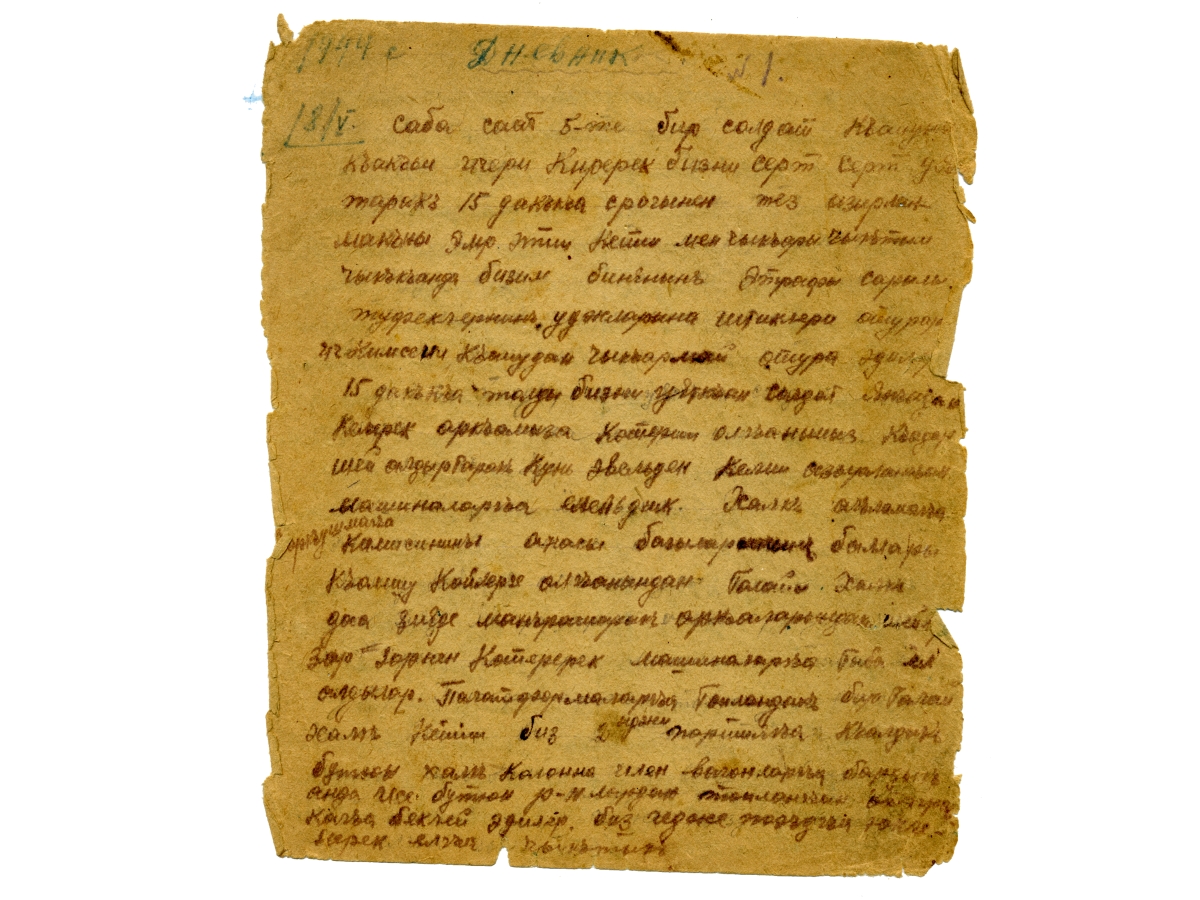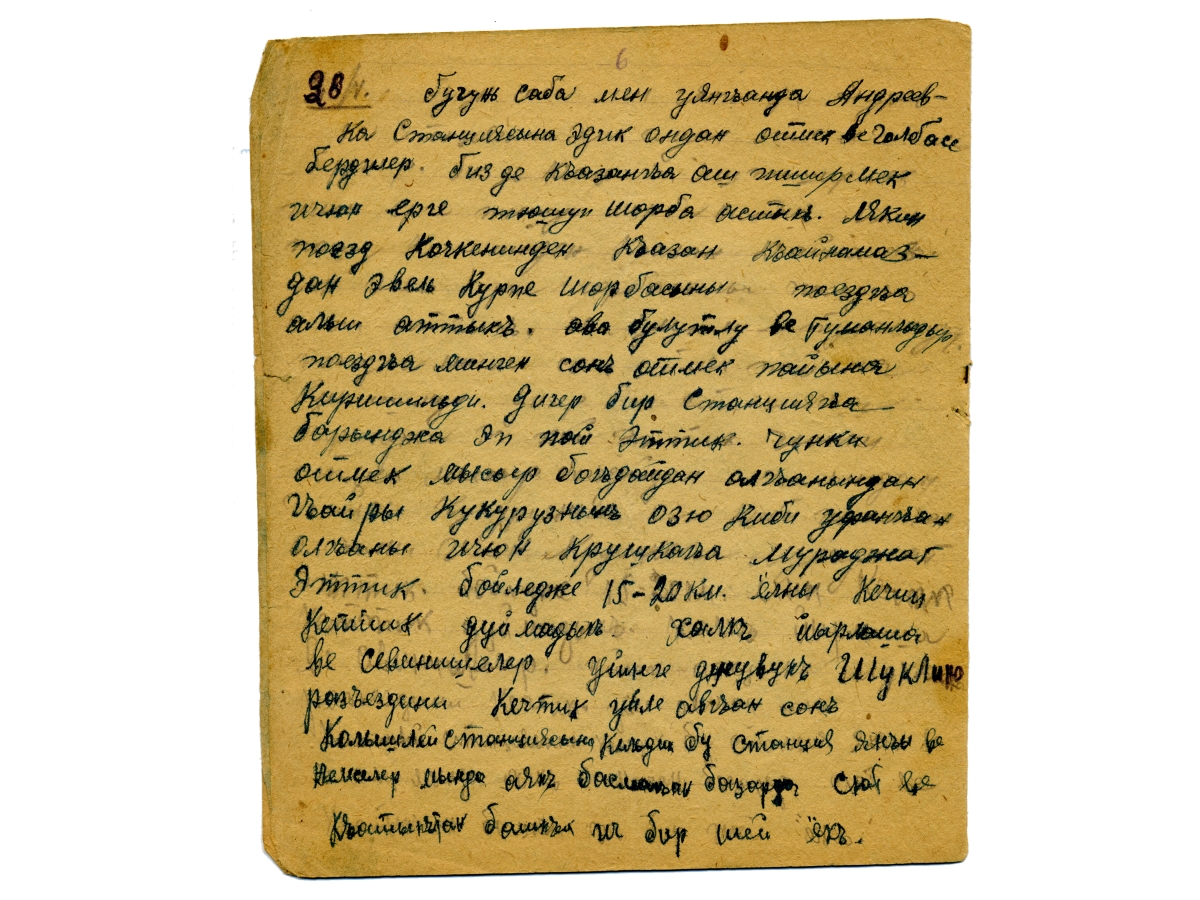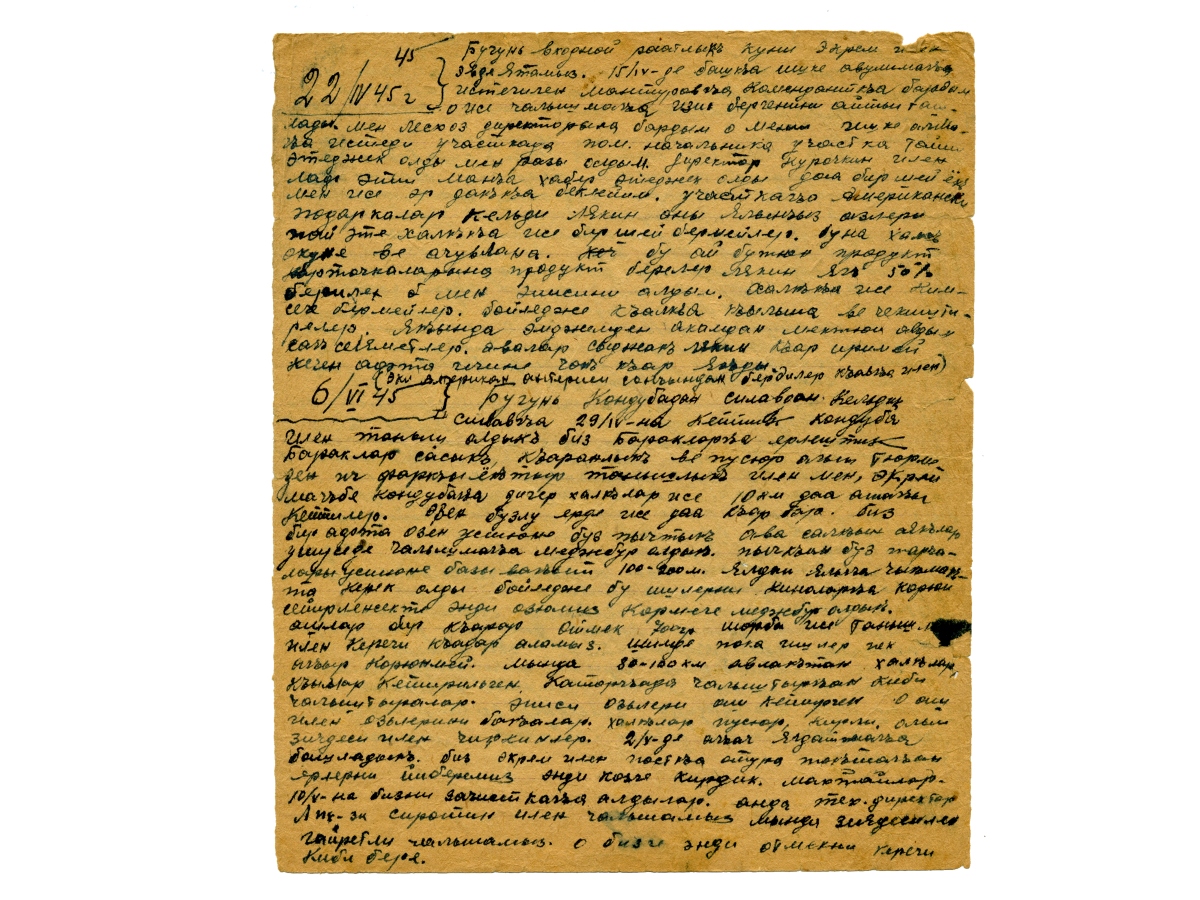On May 18, 1944, in accordance with the resolution of the State Defense Committee of the USSR No. 5859ss dated May 11, 1944, “On the Crimean Tatars”, it was decided to “finally cleanse” Crimea of representatives of the peninsula’s indigenous population. They were accused of alleged mass treason and collaboration during the Nazi occupation of Crimea.
According to official data, about 200,000 people were deported by the NKVD, of whom 46% died within a year and a half. The museum’s collection contains a unique testimony of this crime – the diary of Ramazan Ismailov, the first lines of which were written precisely on May 18, inside a freight train car that was transporting the deported to Uzbekistan.
The diary was acquired by museum researchers during a field trip to the Autonomous Republic of Crimea in 2010. It was then decided to reveal this topic in the exhibition space for the first time. The expedition proved extremely fruitful – scholars met with several Crimean Tatar families, recorded their memories of the deportation, and collected family materials.
The diary turned out to be a real treasure, since up until that time only Ramazan Ismailov’s family knew of its existence. Its disclosure once again confirmed the brutality of the Soviet regime’s genocidal practices, when people were violently expelled from their homes, given only 15 minutes to pack, and transported thousands of kilometers away in cattle wagons as if they were livestock.
In the entry from May 18, 1944, among other things, it reads:
“Five o’clock in the morning… There was a persistent knock at the door… A soldier entered the house and informed us about the deportation… Our family of six began to gather our belongings and put them into a sack. First of all, my mother, taking the Quran and prayer beads, went out into the yard. Behind her came my younger sister Shevkiye, who carried a teapot and a cup in her hands. The rest of the family took whatever they could carry. In such a composition – mother with the Quran in her hands, followed by five children – we walked into the walnut grove. Hundreds of elderly people, children, the lame, and the blind were walking along the streets…”
The Ismailov family was not spared, even though Ramazan was a fighter in the 9th Partisan Detachment of the Southern Partisan Unit of Crimea, just like many other Crimean Tatar families whose men served in the Red Army. All of them were deported to various regions of Central Asia.
The Ismailovs ended up in the Andijan region of Uzbekistan, where Ramazan worked as a builder. In 1956, he married Lilia Suleimanova, who had also been deported from the Bakhchisaray region of Crimea. Together they raised four children. The large family was able to return home only in 1989.
In 2002, Ramazan Ismailov passed away, and his wife in 2013. It was she who handed the diary over to the museum and shared the family story, including the conditions of transportation to Uzbekistan, their life in exile, and the long-awaited return to their native Crimea.
In December 2015, the Verkhovna Rada of Ukraine recognized the deportation of the Crimean Tatars by the Soviet regime as genocide and declared May 18 the “Day of Remembrance for the Victims of the Crimean Tatar Genocide.” Later, the parliaments of other countries followed. However, after occupying Crimea in 2014, the Kremlin continued its repressive policies, carrying out systematic persecutions against defenders of the Crimean Tatar people’s rights. Since then, more than 50,000 Crimean Tatars have been forced to leave the peninsula, and many have been banned by Russian authorities from returning home. This is the same reality the Crimean Tatars endured in 1944 and are forced to experience again today.


